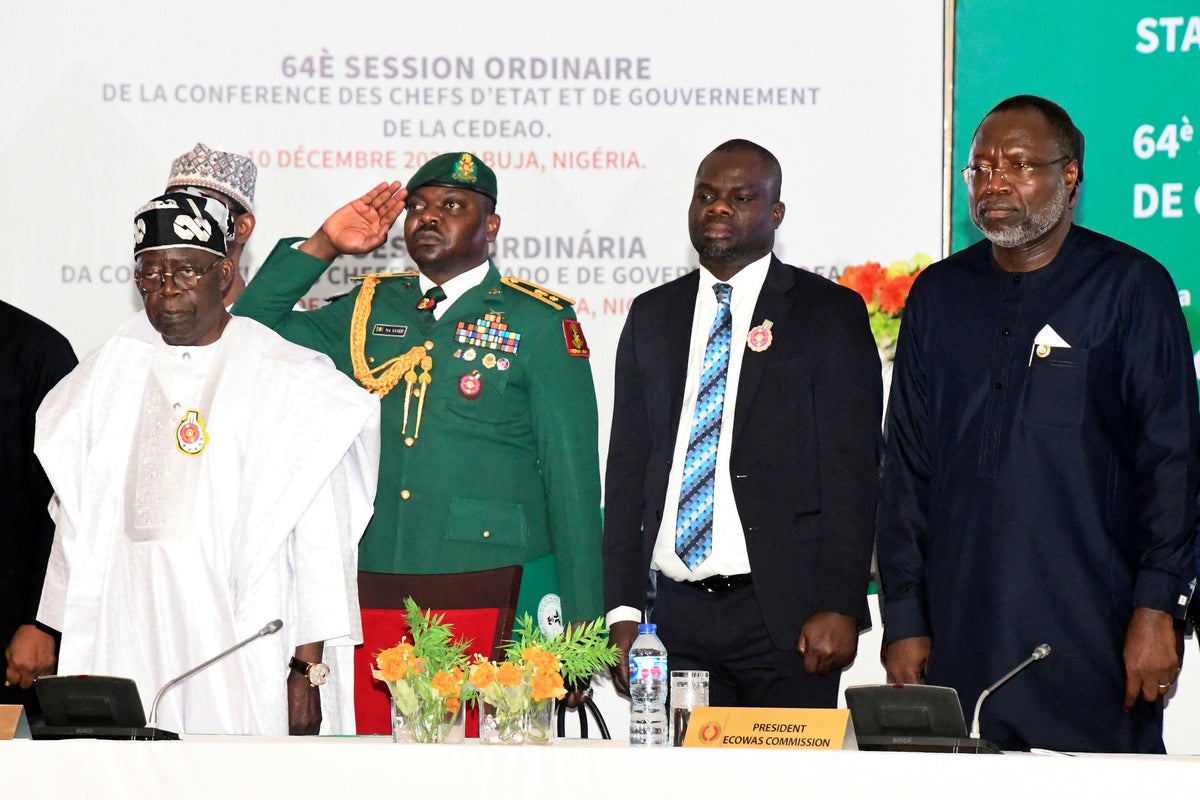
In a renewed push for respect for democracy in coup-hit West Africa, leaders from across the region kicked off a crucial meeting in Nigeria on Sunday and acknowledged for the first time that their efforts to stem the tide of coups have so far met with little success.
The 15-nation regional bloc, ECOWAS, has unsuccessfully tried to restore political stability across West and Central Africa which has recorded eight military takeovers since 2020, including in Niger and Gabon. In the past month, the governments of Sierra Leone and Guinea-Bissau have also described political crises as attempted coups.
Despite sanctions and other measures by ECOWAS, the junta in Niger has consolidated its grip on power, while the military governments of Mali and Burkina Faso have stopped collaborating with the bloc on their countries' transition to civilian rule, ECOWAS commission president Omar Alieu Touray told the 64th ordinary session of the bloc in Abuja, Nigeria's capital.
“After a moment of progress … we have noticed a near pause in the implementation of the agreed transition timetable for some time now,” Touray said.
The bloc will continue to “stand against the unconstitutional change of government” in Niger despite the setbacks, said Nigerian President Bola Tinubu, who was elected leader of the bloc this year.
“We refuse to be detracted from pursuing the collective aspirations and the noble path for ECOWAS,” Tinubu said. “Democracy must win if we fight for it, and we will definitely fight for democracy.”
Under his leadership, the regional bloc has imposed its most stringent travel and economic sanctions yet against Niger after elite soldiers deposed and detained President Mohamed Bazoum in July. Tinubu said that would send a strong message to other nations.
But rather than deter the soldiers who took over power in Niger and elsewhere, the sanctions appear to have emboldened them, analysts say.
Niger's junta has set up a transitional government that could remain in power for up to three years and has increasingly sought legitimacy elsewhere. It has forged an alliance with Burkina Faso and Mali and by turning to Russia for a military partnership after severing ties with European countries, particularly France.
The junta in Niger has also kept Bazoum under house arrest, despite international pressure.
“The stringent regional and international sanctions on Niger (and previously the other juntas) have emboldened the juntas to centralize control further and unite against ECOWAS and Western backers such as France and the EU,” said Karim Manuel, an analyst for the Middle East and Africa with the Economist Intelligence Unit. “Basically, the sanctions, as expected, backfired ... notably given strong public support for the coups,” Manuel added.
As the ECOWAS meeting kicked off, the junta in Niger said via X, formerly known as Twitter it would not change its stance, although it did not mention the meeting or the bloc. “We won’t back down. We will not compromise. We will not betray and we will overcome,” the junta wrote without further details
In attendance at the meeting in Abuja were top officials of Bazoum's deposed government. To date, the bloc continues to call the development in Niger an "attempted coup."
Tinubu also reminded West African leaders to live up to expectations from their citizens, pointing out that the region is also confronted with the challenges of “democratic consolidation, economic difficulties, climate change, exchange crises and food insecurity."
“The delivery of good governance is not just a fundamental commitment; it is also an avenue to address the concerns of our citizens,” the Nigerian leader said.







